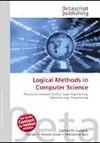代币博弈与历史确定性定量自动机
IF 1
4区 数学
Q4 COMPUTER SCIENCE, THEORY & METHODS
引用次数: 0
摘要
如果一个非确定性自动机的非确定性可以仅通过考虑到目前为止所读单词的前缀来解决,那么它就是历史确定性的。由于其良好的组合特性,历史确定性自动机在解决博弈和综合问题方面非常有用。确定给定的非确定性自动机是否是历史确定性的(hdd问题)通常是一项困难的任务,它可能涉及指数过程,甚至是不可确定的,例如下推自动机。令牌游戏提供了一个PTime解决b本文章由计算机程序翻译,如有差异,请以英文原文为准。
Token Games and History-Deterministic Quantitative-Automata
A nondeterministic automaton is history-deterministic if its nondeterminism can be resolved by only considering the prefix of the word read so far. Due to their good compositional properties, history-deterministic automata are useful in solving games and synthesis problems. Deciding whether a given nondeterministic automaton is history-deterministic (the HDness problem) is generally a difficult task, which can involve an exponential procedure, or even be undecidable, as is the case for example with pushdown automata. Token games provide a PTime solution to the HDness problem of B\"uchi and coB\"uchi automata, and it is conjectured that 2-token games characterise HDness for all $\omega$-regular automata. We extend token games to the quantitative setting and analyse their potential to help deciding HDness of quantitative automata. In particular, we show that 1-token games characterise HDness for all quantitative (and Boolean) automata on finite words, as well as discounted-sum (DSum), Inf and Reachability automata on infinite words, and that 2-token games characterise HDness of LimInf and LimSup automata, as well as Sup automata on infinite words. Using these characterisations, we provide solutions to the HDness problem of Safety, Reachability, Inf and Sup automata on finite and infinite words in PTime, of DSum automata on finite and infinite words in NP$\cap$co-NP, of LimSup automata in quasipolynomial time, and of LimInf automata in exponential time, where the latter two are only polynomial for automata with a logarithmic number of weights.
求助全文
通过发布文献求助,成功后即可免费获取论文全文。
去求助
来源期刊

Logical Methods in Computer Science
工程技术-计算机:理论方法
CiteScore
1.80
自引率
0.00%
发文量
105
审稿时长
6-12 weeks
期刊介绍:
Logical Methods in Computer Science is a fully refereed, open access, free, electronic journal. It welcomes papers on theoretical and practical areas in computer science involving logical methods, taken in a broad sense; some particular areas within its scope are listed below. Papers are refereed in the traditional way, with two or more referees per paper. Copyright is retained by the author.
Topics of Logical Methods in Computer Science:
Algebraic methods
Automata and logic
Automated deduction
Categorical models and logic
Coalgebraic methods
Computability and Logic
Computer-aided verification
Concurrency theory
Constraint programming
Cyber-physical systems
Database theory
Defeasible reasoning
Domain theory
Emerging topics: Computational systems in biology
Emerging topics: Quantum computation and logic
Finite model theory
Formalized mathematics
Functional programming and lambda calculus
Inductive logic and learning
Interactive proof checking
Logic and algorithms
Logic and complexity
Logic and games
Logic and probability
Logic for knowledge representation
Logic programming
Logics of programs
Modal and temporal logics
Program analysis and type checking
Program development and specification
Proof complexity
Real time and hybrid systems
Reasoning about actions and planning
Satisfiability
Security
Semantics of programming languages
Term rewriting and equational logic
Type theory and constructive mathematics.
 求助内容:
求助内容: 应助结果提醒方式:
应助结果提醒方式:


